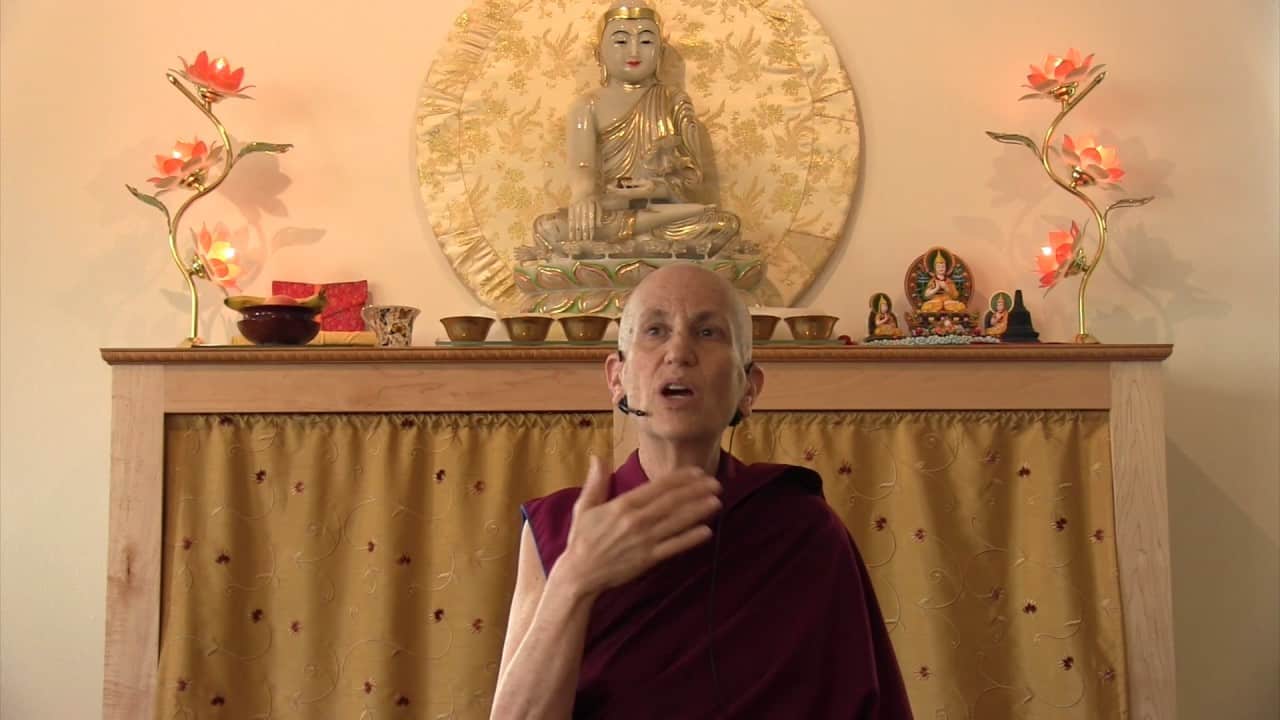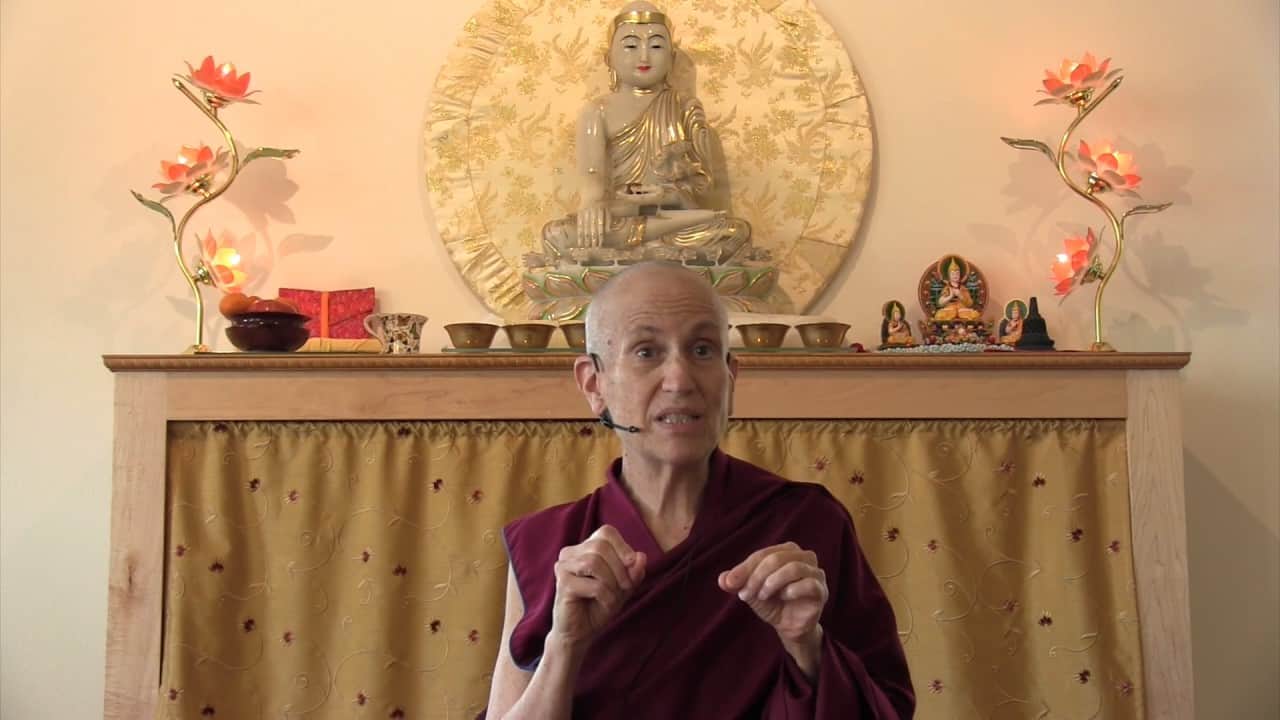Great compassion and the great resolve
The text turns to training the mind on the stages of the path of advanced level practitioners. Part of a series of teachings on the Gomchen Lamrim by Gomchen Ngawang Drakpa. Visit Gomchen Lamrim Study Guide for a full list of contemplation points for the series.
- Heartwarming love is the cause for compassion
- The four immeasurables in the Pali and Mahayana traditions
- Generating compassion by reflecting on the three kinds of dukkha
- Using Tsongkhapa’s verse to generate unconditional love and compassion
- The great resolve
Gomchen lamrim 65: Great compassion and the great resolve (download)
Contemplation points
Transcribed below is the meditation that Venerable Chodron did at the beginning of the teaching with edits to include points from the teaching itself.
- Begin by considering that all sentient beings have been your parent or some kind of caregiver to you.
- You’ve had that kind of close relationship with each and every living being at some time in previous lives, human or non-human. We haven’t always been in the physical form we are today. We haven’t always been the person that we are today.
- If you have difficulty with that concept, feeling like you’ve been the same person in all previous lives, then recall emptiness and the lack of inherent existence. That will help lessen that conception of a real me.
- By using the example of your present parents, what you’ve observed of others’ parents, or caregivers, think of the kindness that has been shown to you since you’ve been an infant: giving to you physically, teaching you everything you know, etc… so that you grew up to be the person you are today. Think of their kindness.
- As you feel the kindness of others, how you could not have stayed alive on your own without what others have done for you, then let arise very naturally a wish to give them something in return, to repay that kindness in some way.
- From there, let a feeling of affection arise in your heart, seeing all these living beings as lovable, as being worthy of affection. If it’s easier, you can think of them all in human form.
- Consider the dukkha in which they live under the influence of afflictions and karma, wanting happiness not suffering but meeting so many obstacles.
- So these beings who have been so kind to you, who you see in beauty in this way, are really having a horrible time of it because samsara is no fun at all. So in this way, have the wish for them to be free of that dukkha (compassion).
- Venerable Chodron went into the three types of dukkha in this week’s teaching. Be sure to investigate each of these as you consider the suffering you are wishing beings to be free of, especially the dukkha of pervasive conditioning.
- Lama Tsong Khapa talks about wanting to be free of the “four power rivers” that sweep us away (sensual pleasure, craving for rebirth, craving for self, wrong views). Then “bound by the strong bonds of karma which are so hard to undo,” consider how the energy of our karma makes it difficult to overcome our negativity and pushes us towards the negative results of our own actions. “Caught in the iron net of self-grasping ignorance. Born and reborn in boundless cyclic existence. Completely enveloped by the darkness of ignorance…” Really make this visualization part of this point on great compassion.
- While compassion is certainly virtuous, it doesn’t do anything to change the situation. So generate the great determination, the great resolve, to make the welfare of other beings your priority.
- Think that you want to dedicate your life to their welfare; that you are willing to get involved in that project.
- Seeing the dire situation we are all in, seeing that it is intolerable, generate the feeling that you can’t help but want to get involved.
- Then, knowing that in your present situation you can help others somewhat but only in a very limited way and knowing that you don’t even have the present capacity to liberate yourself, generate the aspiration to attain full awakening so that you’ll have all the compassion, wisdom, and skillful means to benefit them most effectively.
- Think, “I will never give up that altruistic intention. It’s the most important thing in my life.”
- Return to this very firm determination throughout the day (remember “fake it ’til you make it” fabricated bodhicitta is how we get started on the path to achieving spontaneous bodhicitta).
Venerable Thubten Chodron
Venerable Chodron emphasizes the practical application of Buddha’s teachings in our daily lives and is especially skilled at explaining them in ways easily understood and practiced by Westerners. She is well known for her warm, humorous, and lucid teachings. She was ordained as a Buddhist nun in 1977 by Kyabje Ling Rinpoche in Dharamsala, India, and in 1986 she received bhikshuni (full) ordination in Taiwan. Read her full bio.


